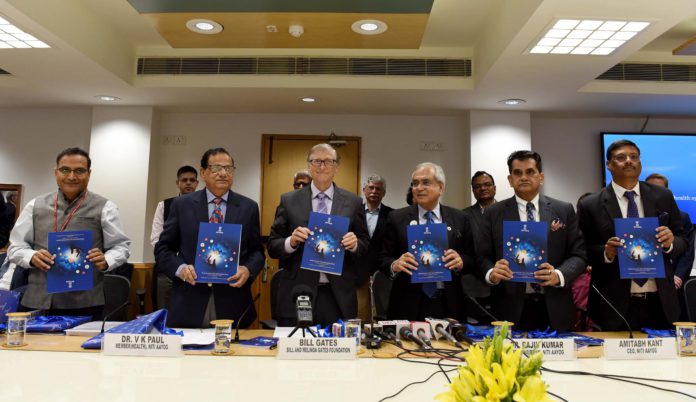
New Delhi (NVI): India’s health system is lagging behind comparable countries in many key systems performance indicators as the nation sits on 145th position in global healthcare ranking with total ‘health expenditure’ being just 4% of GDP and per capital health spend being just 239, a government report says.
By introducing ‘critical health systems transformations,’ India can save more than a million additional children lives and reduce working age adults death by an additional 16% by 2030 which would translate into a 64% increase in real GDP by end of next century, a Niti Ayog report, which was released here today, says.
“Additional 16% decline in working-age adult mortality would increase real GDP 64% by 2030 as compared to current trajectory. Up to 50% of this potential increase can be attributed to the health system transformation when implemented,” says the report titled ‘Transforming the Indian health system in the 21st century.”
The health system transformation will also “reduce avoidable out-of-pocket (health) expenses to less than 45% by 2030 as compared to India’s current no-transformation trajectory that would have it at more than 60% by the same year. This would save at least 1.5 million additional households from falling into poverty due to illness,” the report adds.
Rajiv Kumar, Vice Chairman, NITI Aayog while releasing NITI Aayog report on ‘Health Systems for a New India: Building Blocks—Potential Pathways to Reforms’ today said, “At a systems level, overcoming the challenges of fragmentation, across healthcare financing and service delivery, will help us optimize both quality and access. India now needs to build on its many opportunities to achieve further progress on the health of its citizens and respond to the growing aspirations and needs of a new India.”
Lauding the significant improvements made in India’s health sector, Bill Gates, co-chairman of Bill and Melinda Gates Foundation said, “Primary healthcare is extremely important for all. India is in a very hopeful situation and is set to be an example for other countries.”
“The private sector needs to be involved to meet key challenges and that the Gates Foundation through its initiatives will extend all possible help,” he added.
The report identified five focus areas of future health system, deliver on unfinished Public health agenda, change health financing away from out of pocket so spend into large insurers, integrate service delivery vertically and horizontally, empower citizens to become better buyers of health, harness the power of digital health, said an official statement.
The officials from NITI Aayog, policymakers, and representatives from national and international academia and Bill and Melinda Gates Foundation were also present at the event.
–nad/ps








